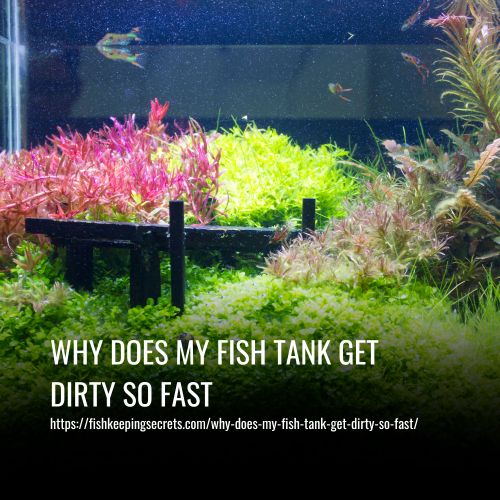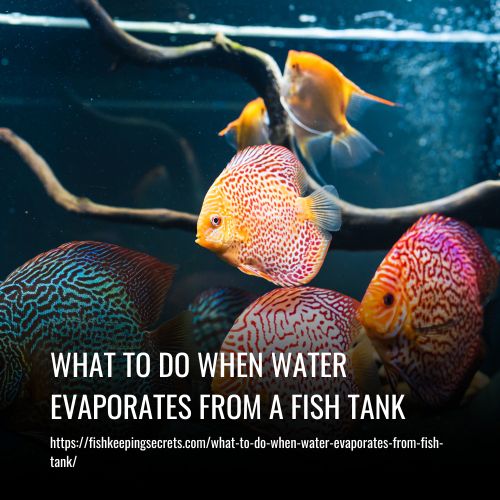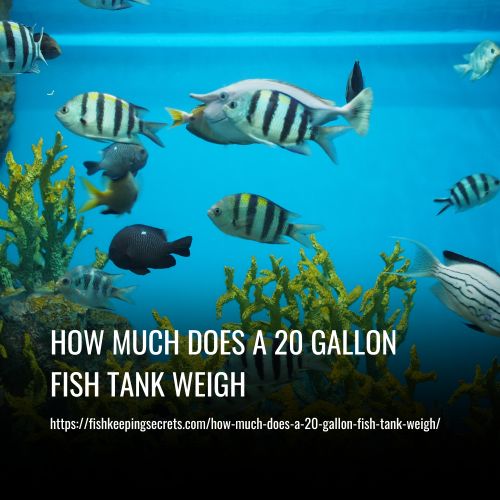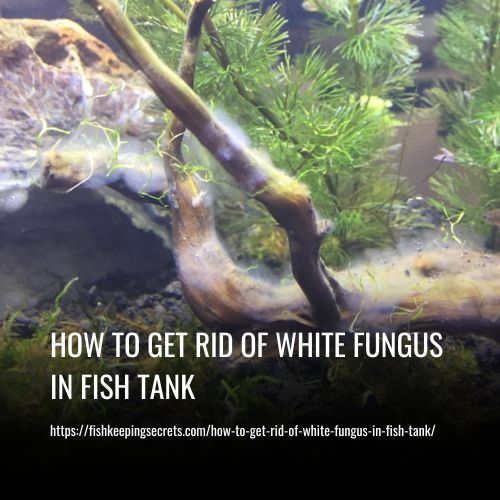A dirty fish tank can be caused by several factors, including excessive algae growth and inadequate filtration. Algae thrive in the presence of UV light, so limiting the duration of UV exposure can help prevent rapid algae growth.
Additionally, if the size of the tank and the filter are not sufficient to handle the waste produced by the fish, the water can quickly become dirty. Ensuring proper tank size and filtration capacity can help maintain a cleaner and healthier environment for your fish.
Reasons why your fish tank get dirty so fast:
- 1. Algae Growth
- 2. Inadequate Filtration
- 3. Excessive Fish Waste
- 4. Lack of Maintenance
- 5. Overfeeding
- 6. Excessive Sunlight

Reasons Why Your Fish Tank Get Dirty So Fast
A dirty fish tank can be a common problem for fish owners, but there are a few reasons why it may be happening.
1. Algae Growth
One of the main reasons for a dirty fish tank is algae growth. Algae can grow quickly when there is enough UV light present. To prevent algae growth, it’s important to limit the duration of UV exposure in the tank. This can be done by reducing the amount of direct sunlight or artificial light that reaches the tank.
2. Inadequate Filtration
Another reason for a dirty fish tank is inadequate filtration. If the size of the tank and the size of the filter are not sufficient to accommodate the amount of waste produced by the fish, the water can become dirty quickly. It’s important to choose a filter that is appropriate for the size of the tank and the number of fish in it. Regular maintenance of the filter, such as cleaning or replacing the filter media, is also important to keep the water clean.
3. Excessive Fish Waste
Excrements produced by the fish can also contribute to a dirty fish tank. If there are too many fish or if they are overfed, the amount of waste produced can overwhelm the filtration system and lead to dirty water. It’s important to properly manage the number of fish in the tank and feed them an appropriate amount to prevent excessive waste buildup.
4. Lack of Maintenance
Performing regular water changes is essential to maintain a clean and healthy fish tank. Regularly removing a portion of the water and replacing it with fresh, treated water helps remove debris, waste, and excess nutrients from the tank. This can help prevent the water from becoming dirty too quickly.
5. Overfeeding
Overfeeding your fish can result in excessive waste and uneaten food accumulating in the tank. This can lead to poor water quality and increased maintenance requirements. It’s important to feed your fish in moderation and remove any uneaten food after feeding to prevent this issue.
6. Excessive Sunlight
If your tank is exposed to too much direct sunlight, it can promote the growth of algae. Algae blooms can quickly make your tank look dirty and affect water quality. Consider moving your tank to a location with less direct sunlight or use curtains or shades to limit the amount of light reaching the tank.
Addressing these factors can help prevent your fish tank from getting dirty quickly after cleaning.
How to Prevent Your Fish Tank Get Dirty So Fast
Preventing a dirty tank requires attention to detail and regular maintenance. Here are some tips to keep your tank clean and your fish healthy:
1. Proper Filtration
Make sure your filtration system is the right size for your tank and capable of handling the appropriate gallons per hour filtration rate. Cloudy water or suspended solids may indicate problems with the filtration system. Treat the beneficial bacteria in your filter element with care to maintain a healthy environment.
2. Watch Your Feeding
Overfeeding can lead to a dirty tank. Only feed your fish the right quantity that they can consume quickly. Uneaten food in the tank can become suspended solids and promote algae growth. Be mindful of the amount of light your tank receives, as excessive light combined with nutrients can fuel algae growth.
3. Maintain a Routine
Establish a daily, weekly, and monthly routine for tank maintenance. Daily tasks include checking on your tank, feeding your fish, inspecting the filter, and observing your fish for signs of distress or disease. Weekly tasks include removing dead leaves from live plants, cleaning algae from the tank’s sides, and replacing a portion of the water. Monthly tasks include vacuuming the gravel and performing a thorough inspection of the equipment.
4. Be Mindful of Water Quality
Regularly check the water for foul odors, floating solids, or any other issues. If conditions warrant it, perform a higher-volume water replacement. Use dechlorinated water when adding fresh water to the tank.
By following these preventive steps and maintaining a clean and healthy environment, you can ensure your fish thrive and your tank stays in optimal condition.
How Often Should You Clean Your Fish Tank
In order to improve the environment for the stressed or anxious fish, the water quality should be addressed. Regular cleaning and maintenance tasks are crucial to ensure the well-being of the fish. Daily tasks include removing limescale deposits, checking water levels, and trimming dead plant leaves.
Weekly tasks involve checking the filtration system, removing excess algae growth, vacuuming uneaten food and fish waste, wiping the tank, and cleaning the lid. Chemical filtration media should be serviced every two weeks, with biweekly or monthly water changes depending on the stocking level.
Monthly tasks include performing a water change of 30-50% of the tank’s volume and using a tap water conditioner. It is important to maintain a consistent cleaning and maintenance routine to keep the fish tank environment healthy and reduce stress.
Tips and Tricks to Keep Your Tank Clean for Longer
Here are some tips and tricks to keep your fish tank clean for longer:
1. Grow Live Plants
Live plants help in keeping the aquarium clean by consuming toxic compounds as fertilizer, releasing oxygen, and exporting nutrients that would otherwise promote algae growth. Dead plant waste is easier to remove and doesn’t decay quickly, resulting in cleaner water.
2. Keep Fewer Fish
Overstocking the tank can lead to dirty water. Leaving some extra room for your fish allows for better swimming space, reduces stress from territorial tank mates, and makes maintenance easier.
3. Provide Aeration and Circulation
Aeration and water circulation help oxygen reach all areas of the tank, promoting the growth of beneficial aerobic bacteria that aid in the nitrogen cycle. Good oxygen transport also prevents the formation of toxic compounds by killing off oxygen-hating bacteria.
4. Feed Your Fish Less
Only feed your fish the amount they need to avoid leaving uneaten food. Fish require less food than you may think, and overfeeding can lead to a dirty tank. Feeding less also promotes healthier fish.
5. Create a Regular Maintenance Schedule
Establishing a regular schedule for tank maintenance, including tasks like removing algae, maintaining filtration systems, and using a water siphon to remove fish waste, helps prevent the tank from getting dirty. Proactive maintenance ensures a clean tank over the long term.
By following these tips, you can help keep your fish tank clean and ensure the well-being of your fish.
FAQs
Cloudy aquarium water is a sign of an imbalance and can be indicative of a bigger issue. To address it, assess your water quality by testing the aquarium water. Get a baseline of nutrient levels and take measures as necessary. A water change usually helps to restore balance.
Fish can survive in a dirty tank without a filter for about three to seven days. However, it is important to regularly clean the tank to prevent the build-up of dirt and maintain the health of the fish. A filter can help keep the water clean by removing debris and maintaining water quality.
Driftwood can cause a tank to appear cloudy or murky. It may also release tannins, causing the water to turn a tea-like color. This is not for every looking for, so lower tannin driftwoods like Manzanita or Tigerwood are available for those who prefer to avoid this color.
Proper filtration, maintenance, and stock levels are essential for optimal aquarium water clarity. Equipment like an aquarium UV sterilizer can also help maintain optimal conditions.
A filter can improve clouded water. When a tank is new, the filtration system may need time to adjust. Adding another filter may be necessary if the tank has many inhabitants and inadequate filtration for hazy or cloudy water. The filter may also require maintenance if it gets dirty.
There are several reasons why your fish tank filter may be getting dirty after just one week. One reason is that the filter is doing its job of removing dirt and waste from the tank, so it becomes dirty and clogged. The size of your tank could also be a factor, as a smaller tank might produce more waste and require the filter to work harder.
The frequency of cleaning your fish tank filter depends on factors such as the size of your tank, the number of fish, and the type of filter you are using. In general, it is recommended to clean the filter once a month. However, if you have a large tank or a high number of fish, you may need to clean it more frequently, like every two weeks or even weekly.
The lifespan of an aquarium filter can vary depending on several factors such as the filter’s quality, maintenance, size of the aquarium, and number of aquatic organisms in the tank. Generally, it is recommended to replace the filter every 4-6 weeks. However, this timeframe can vary based on the circumstances. If the filter shows signs of wear and tear, it is advisable to replace it earlier.
There are several reasons why your filter may not be cleaning your fish tank effectively. It could be due to a malfunctioning motor or a clogged filter media. If the filter is too small for your tank or the number of fish you have, it may not be powerful enough to handle the waste production. Another possibility is that you’re not cleaning the filter frequently enough, allowing debris and waste to clog the media. Additionally, imbalances in water parameters can harm the beneficial bacteria in the filter, reducing its effectiveness.
Conducting water changes is an important part of keeping a healthy aquarium. To start off, remove all the decor that isn’t alive from your aquarium and use a soft brush to wipe down any plants you have in there. If you have any decorations like rocks or gravel, you’ll need to use a more intense brush to remove any build-up of algae or particles on it. Keep those items next to the fish tank while you do the rest of your water change. Once that’s complete, use a siphon device to get rid of additional waste in the substrate of your tank.
Conclusion
Understanding why your fish tank gets dirty so quickly is the first step to successfully keeping it clean. Whether it be due to a large bio-load, gravel buildup, or chemical imbalance, taking the proper steps now can make all the difference in the long run. Doing regular water changes and maintenance can help improve water quality and keep the water healthy for your fish. Don’t forget that prevention is key, so stay on top of regular maintenance and checkups to ensure you have happy and healthy fish!



